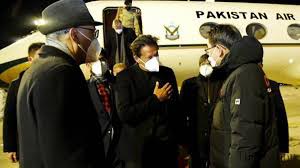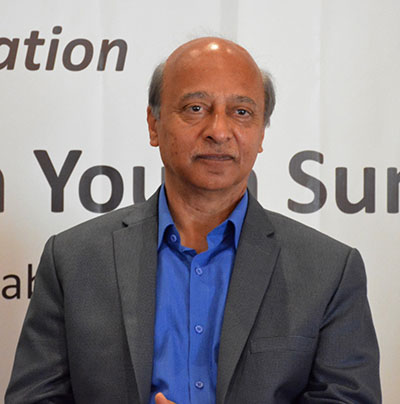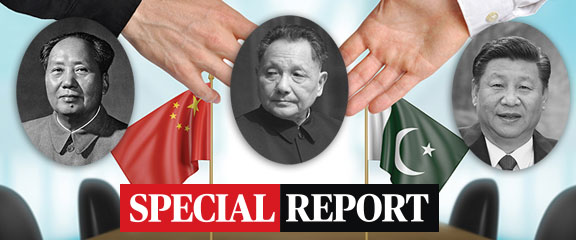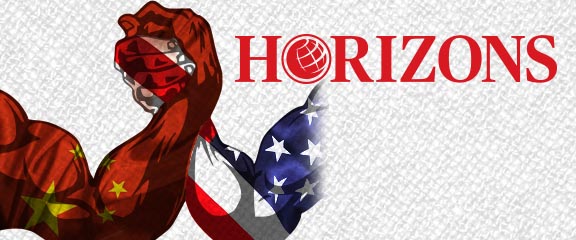Before embarking on the trip to Beijing, Prime Minister Imran Khan had cleared Rs. 50 billion that Pakistan owed to the Chinese IPP investors. Another Rs. 100 billion of the nearly Rs. 900 billion was paid after the visit. In response, on February 10, the Chinese insurance company, Sinosure, moved forward and cleared the way for fresh Chinese investment, thereby removing a big bottleneck that had prevented the disbursement of investment loans since the late 2020.
Prime Minister Imran Khan’s meeting with President Xi Jin Ping, on February 6, literally put the economic relationship back on track between the two allies. Both leaders agreed to take this time-tested relationship forward more vigorously as well as closely collaborate on counter terrorism measures.
The 33-point Joint Declaration, announced after the visit, ended the string of speculations on China-Pakistan Economic Corridor’s (CPEC) projects and the reported Chinese displeasure over outstanding payments to its power companies.
The undertone of the declaration was categorical; the political relationship is stronger than the ‘technical issues’ around the power projects.
‘I think these are hyped-up technical issues, and would not form major obstacles for our two countries’ greater cooperation,’ said a senior Chinese diplomat when asked about the payments to Chinese IPPS.
At the centre, there have been 10 power projects — 9 power stations worth 5,600 plus megawatts and the roughly 900 km Lahore-Matiari High-Voltage Transmission line. All had been completed, but Pakistan’s relevant authorities dithered for months, hoping the Chinese would revise the tariffs downwards, a bizarre and indecent expectation in the presence of sovereign guarantees that the state of Pakistan had accorded to these projects.
The Prime Minister, it appears, had been told that the delay in bilateral talks for sorting out ‘technical issues’ was because of COVID-19. And obviously, the Pakistani leader — despite all his good intentions — was unable to think through the sinister games that advisors and bureaucrats, around him, had been playing.
‘We experienced delays because of the corona situation and only a physical meeting with President Xi helped us remove the roadblocks,’ Imran Khan told a select gathering of former and serving diplomats.
Although, Chinese businessmen, investors, and some officials have been telling us a different story. It also merits mention that the Chinese leadership has been all over, albeit via internet for political, business, and diplomatic talks on various forums. Business never stopped, but here our bureaucrats gave the Prime Minister the impression that as if the pandemic had brought the Sino-Pakistan relations to a standstill.
Imagine the loss; Imran Khan performed the ground-breaking ceremony of the Gwadar Power Plant in November 2019, but no work was done on this project until his Beijing visit.
In a nutshell, Pakistan and the people of Balochistan in general and Gwadar in particular, lost two precious years. The Water and Power Authority also failed in connecting Gwadar with the national grid. And hence the string of protests that have been erupting every now and then in this emerging port city.
Chinese officials say that the joint statement has spelt out the course for China-Pakistan cooperation for the next stage, including the ‘high-quality development’ of the CPEC, joint response to address COVID-19, deepening economic and trade cooperation, strengthening people-to-people and cultural exchanges, and resolving the humanitarian crisis in Afghanistan.

The joint statement, they said, resonates mutual trust, the spirit of cooperation with a reiteration of commitment to pursue ideals of a close China-Pakistan community and a shared future.
The Beijing 2022 Winter Olympics theme — Together For A Shared Future —was also reflected in the joint statement, mirroring the Chinese ethos i.e., desire to grow and help others around you to grow and develop in a peaceful environment.
In weeks to come, we may witness even greater enthusiasm in bilateral relations but a lot will depend on whether the Prime Minister and his well-meaning friends can neutralise the bureaucratic mindset and the anti-China sentiment within their own circles.
We have yet to see whether the Beijing meeting would lead to kick-starting the ML-1 (Train project) or will the CPEC only muddle along because of the tardy, multi-layered systems here in Pakistan.
Some circles within the government have started talking about the need to ‘reduce over-reliance on China for national development.’ It reduces the country’s stature. But this postulation, perhaps meant to mitigate the US-led west’s concerns over the growing Sino-Pak ties, carries an unrealistic and potentially dangerous proposition i.e. Pakistan can do without Chinese support.
This overlooks the bitter reality that after over two decades it was only China that injected nearly $27 billion in Pakistan — regardless of the merit or otherwise of the way some investments were done. Beijing stuck its neck out. Of course, it wanted to expand westwards as part of its Belt-and-Road-Initiative, but demands for loans or investments originated in Pakistan. And the Chinese obliged in deference to the old and unwavering relationship.
Fruitful outcomes from Prime Minister Imran Khan’s Beijing visit will also depend on whether Pakistan’s decision-makers and implementation organs can adjust themselves to the Chinese speed and expectations.

The writer is the founder and Executive Director of the Centre for Research and Security Studies.



